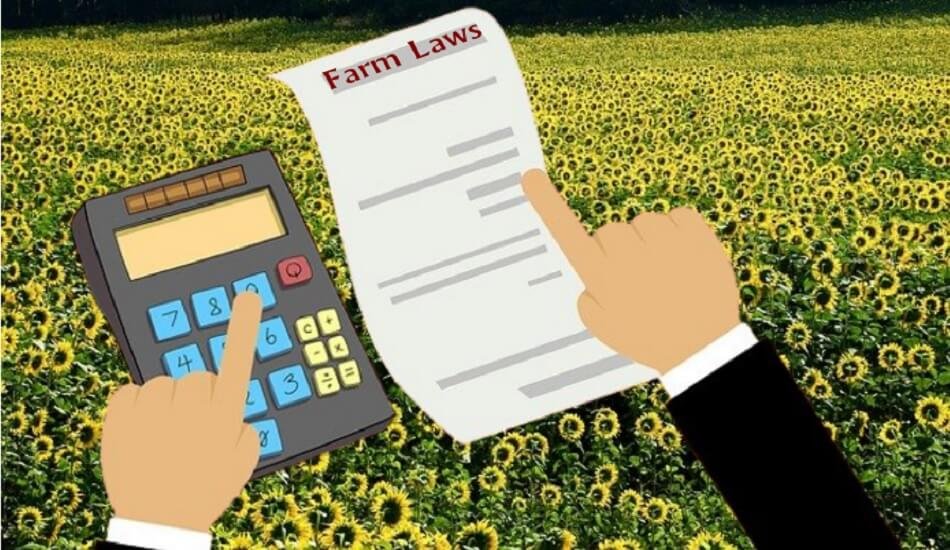Repeal of three farm laws a ‘setback’ for “doubling farmers’ income” – Niti Aayog
Niti Aayog member Ramesh Chand said on Sunday that the repeal of three farm laws has been a ‘setback’ to higher price realization by farmers and could be a factor in accomplishing the goal of doubling farmers’ income by 2022.
He also suggested resuming consultations with states to restart the agriculture reform process, noting that some people have already approached Niti Aayog with a request to implement the reforms.
‘As you can see, reforms are critical for the agricultural sector. Some farmers were opposed to it, and I believe that what needs to be done right away is to restart new consultations with the states,’ the Niti Aayog member who oversees farm policies at the government think tank told PTI.
Also Read | Farm laws: reforms in Indian agriculture will never happen if not now-Ghanwat.
‘Already, people are approaching us to tell us that reforms are required. But how, in what form, in what shape, I believe we will have to wait a while’ He continued.
Chand was responding to a question about whether the BJP’s recent victories in four states — Uttar Pradesh, Uttarakhand, Goa, and Manipur — will give stalled reforms for India’s farm economy a new impetus.
When asked if it was possible to double farmers’ income by 2022 without enacting the three agriculture laws, he said reforms were required to enable growers to get better prices, so if reforms are not enacted, farmers will face a setback in realizing higher prices.
‘So there will be a setback to that goal (doubling farmers’ income by 2022),’ he believes. The NDA government of Narendra Modi has set a goal of doubling farmers’ income by 2022.
On December 1, 2021, the Centre notified a bill repealing three agricultural laws that had been the subject of a year-long protest by thousands of farmers.
Farmers’ Produce Trade and Commerce (Promotion and Facilitation) Act, 2020, Farmers (Empowerment and Protection) Agreement of Price Assurance and Farm Services Act, 2020, and Essential Commodities (Amendment) Act, 2020 were the three farm laws.
In response to a question about the agriculture sector’s growth, he stated that it will be around 3% in the fiscal year 2021-22. Chand also stated that he expects farm sector growth to improve in the current fiscal year if monsoon and other weather patterns remain favorable and do not deteriorate.
In response to a question about high inflation, the eminent agricultural economist stated that the government is always concerned about it. ‘The government takes various measures, such as increased imports of pulses and edible oils if there is inflation due to genuine shortages.’
‘However, in the case of vegetable price increases, seasonal factors also play a very important role, and the prospects of vegetable imports are almost ruled out,’ he explained. The Reserve Bank of India (RBI) has raised its retail inflation forecast for the current fiscal year to 5.7 percent from 4.5 percent previously.
Retail inflation reached an eight-month high of 6.07 percent in February, remaining above the Reserve Bank of India’s comfort level for the second month in a row, while wholesale price-based inflation rose high in the air to 13.11% as crude oil and non-food item prices rose.
Chand also mentioned the impact of global factors on rising commodity prices in the domestic market. ‘So now that the price of fertilizer is rising, the price of diesel is rising, which means the price of transportation is rising, and the cost of production is rising,’ he explained.
Also Read | Protesting farmers misunderstood, New Three Farm Bills – NITI Aayog.
According to the Niti Aayog member, the government is attempting to mitigate the impact of these global factors. As an example, he stated that the government absorbed a large portion of the increase in the price of Di-ammonium Phosphate (DAP) fertilizer.
‘And in the case of urea, the government is absorbing the entire increase in prices, but some increase is still going to happen,’ he explained, adding that it is due to the transmission of global factors.


















Add Comment